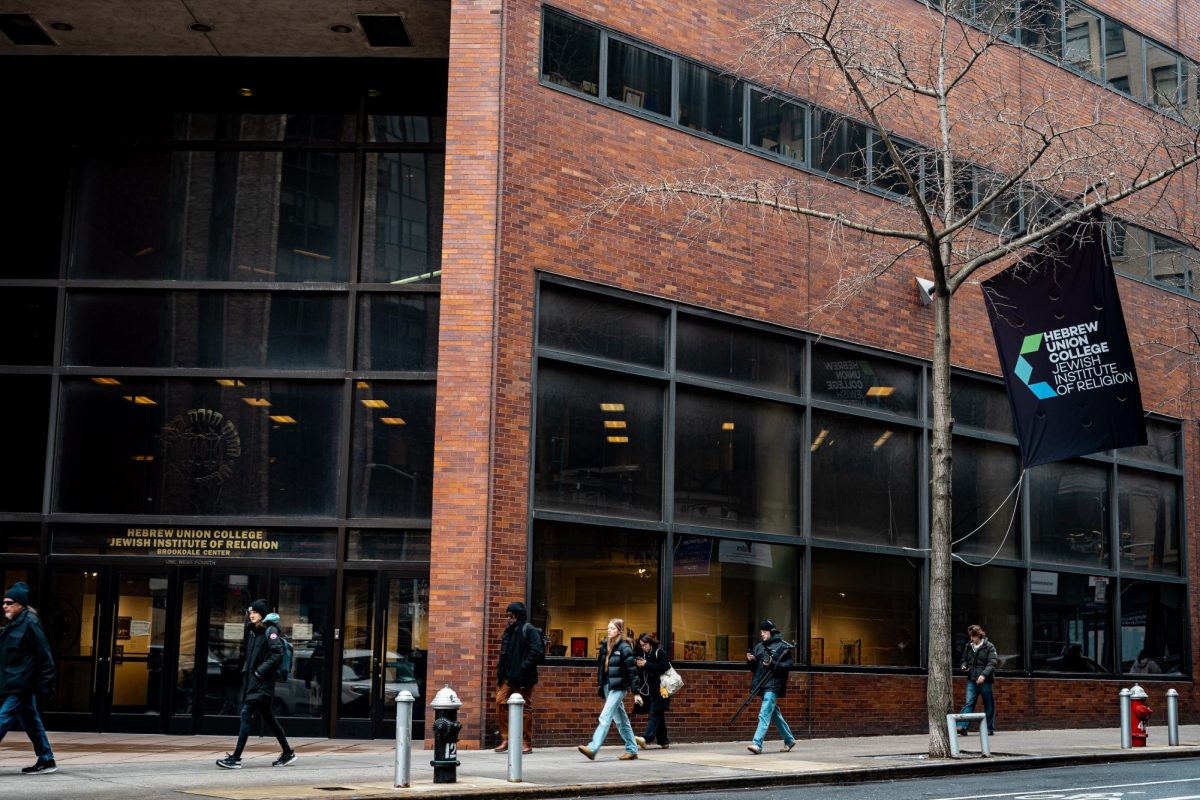Last month, NYU finalized its purchase of the Hebrew Union College building on West Fourth Street for $75.5 million. This addition to the university’s already-massive real estate portfolio has contributed to its growing role as the wealthiest landowner in New York City. NYU owns over 14 million square feet of property in over 100 buildings, also making it the largest private landowner in the city and a great influence on the local housing market. NYU’s continued expansion has fundamentally reshaped entire neighborhoods, raising property values and pushing out long-time residents who can no longer afford to live in the areas they once called home. The university’s latest real estate acquisition is no exception.
The Hebrew Union College building, located in the heart of Greenwich Village, sits in a neighborhood where the median rent for a one-bedroom apartment has soared past $4,000 a month. As NYU takes over more properties, rents increase substantially — NYU needs to use its wealth and influence to offset the effects of its own existence.
The cost of living in New York continues to dominate other cities, with the cost of living being 26% higher than the national average, and housing costs being 80% higher. Gentrification is the biggest contributor to this problem, as large private companies — such as NYU — buy large portions of land that could’ve been used to build affordable housing for low-income families. The lack of affordable housing fuels the homelessness crisis in NYC which has reached the highest level since the Great Depression, with roughly 350,000 people who lack formal housing. As NYU continues to funnel resources into expanding its footprint, students are also impacted as those who choose to live off campus pay more as traditional renters, making it a challenge for many low to middle-income students to find off-campus housing.
Affordable housing has become out of reach for the low-income population. The U.S. Department of Housing and Urban Development defines housing as affordable when the rent makes up less than 30 percent of the renter’s gross income, yet the reality is that many so-called affordable units are priced well beyond what most renters can actually pay. This is largely due to the way affordability is calculated. Programs that set rental prices based on the Area Median Income often inflate affordability standards by factoring in wealthier suburban areas, making the numbers wildly skewed from what typical New Yorkers earn. For example, while the median household income in the city is around $77,000, the adjusted AMI for a family of three is $139,800 — nearly double the real median income. As a result, apartments that qualify as affordable under these programs are still out of reach for lower-income residents.
So what should NYU do to assist in solving New York City’s housing crisis? One possible solution is to model Rice University’s solution. Rice owns Houston’s Ion District, a 16-acre innovation hub for technology and entrepreneurship. This ownership would have been detrimental to Third Ward, one of Houston’s historically Black neighborhoods, leading to displacement and a lack of affordable housing. To mitigate these effects, Rice agreed to a $15.3 million investment for local communities around Houston, which included $4.5 million for affordable housing developers.
NYU is morally obligated to do something similar in allocating a specific amount of funding to local communities. This funding could support existing affordable housing programs, subsidize rent for lower-income families and fund developments that prioritize community needs. It would demonstrate that NYU is willing to take responsibility for its role in the city’s housing crisis rather than continuing to contribute to displacement. NYU must, at the very least, acknowledge its role in gentrification and take meaningful steps to ensure that its growth does not come at the cost of the communities that make this city what it is.
WSN’s Opinion section strives to publish ideas worth discussing. The views presented in the Opinion section are solely the views of the writer.
Contact Steven Wang at [email protected].


























































































































































